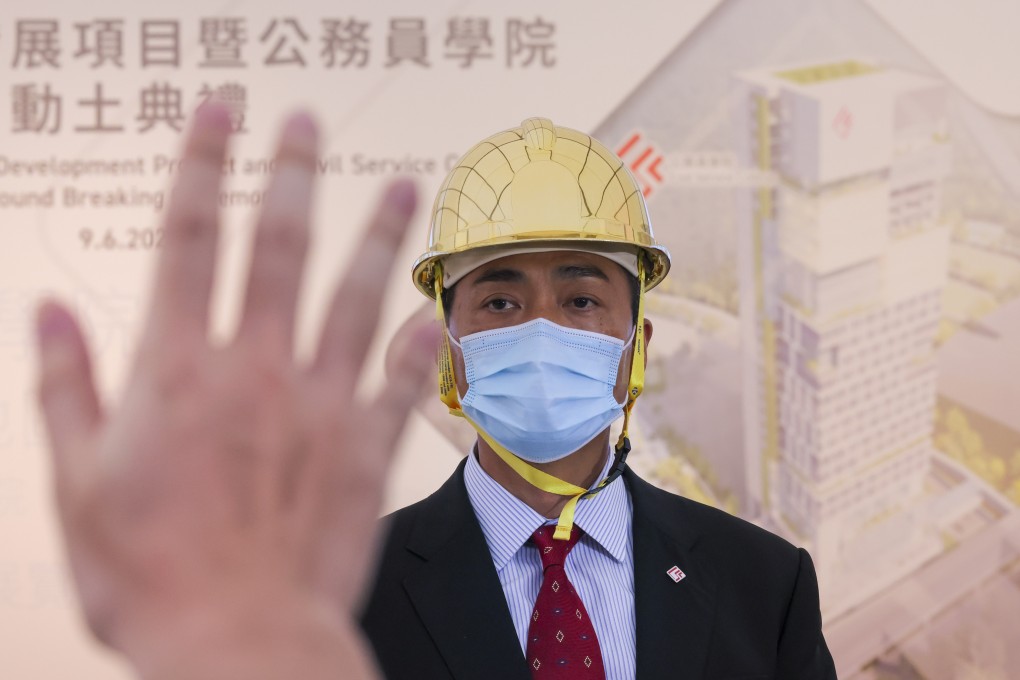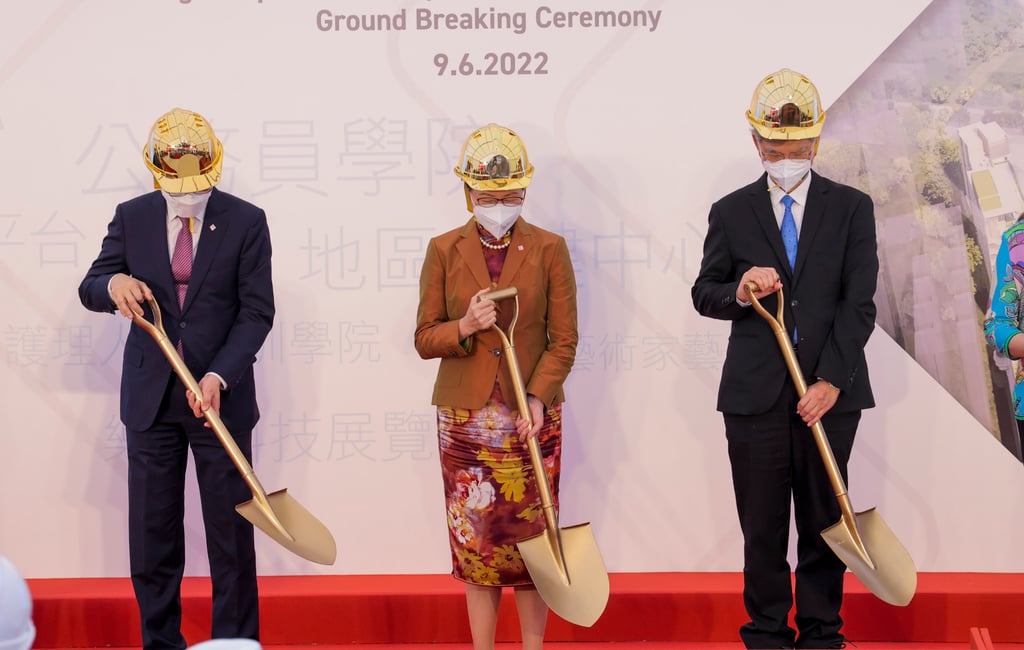New training school for Hong Kong government workers to focus on raising awareness of national security, college head says
- Anyone who fails their assessment ‘must face the consequence,’ says inaugural head of school
- Oscar Kwok says he may consider adopting police-style training if it could steer civic service to become ‘highly efficient’ team

Raising civil servants’ awareness of the need to safeguard national security is the main focus of Hong Kong’s new training school dedicated to government workers, its inaugural head has said, stressing that anyone who fails their assessment “must face the consequence”.
At Thursday’s groundbreaking ceremony of the Civil Service College, Oscar Kwok Yam-shu, who was deputy commissioner of police before he retired in April, also said he might consider adopting a police-style training if it could steer the civic service to become a “highly efficient” team.
“The mentality is of the utmost importance. On top of the understanding and recognition of national security, civil servants should also develop an awareness of safeguarding national security - this is what we will attach great importance to,” Kwok told the press.

The college, established last December, has used the North Point Government Offices as its temporary campus until the construction of its long-term accommodation in Kwun Tong is expected to be completed in 2026 the earliest.
The 57-year-old head, who takes up the role on July 5, said “enormous resources” would be spent to achieve the academy’s long-term goals, which also included bolstering awareness of the constitutional order and the sense of commitment in serving the people amid an international situation he regarded as “complicated and sometimes hostile”.
“There should be standard-based assessments to come with all training. Anyone who fails to meet the standards must bear the consequences,” said Kwok, also former head of the Hong Kong Police College’s foundation training centre.
Without going into details, he said he and his team would formulate assessments that “meet society’s expectation”.
Asked if he would adopt a police-style training in the college, he said: “What happened in society over the past few years, including the Covid-19 epidemic, proved the unique, desirable qualities that police and disciplinary forces have possessed. Any method that would make our civil service a highly efficient and dedicated team is worth exploring.”